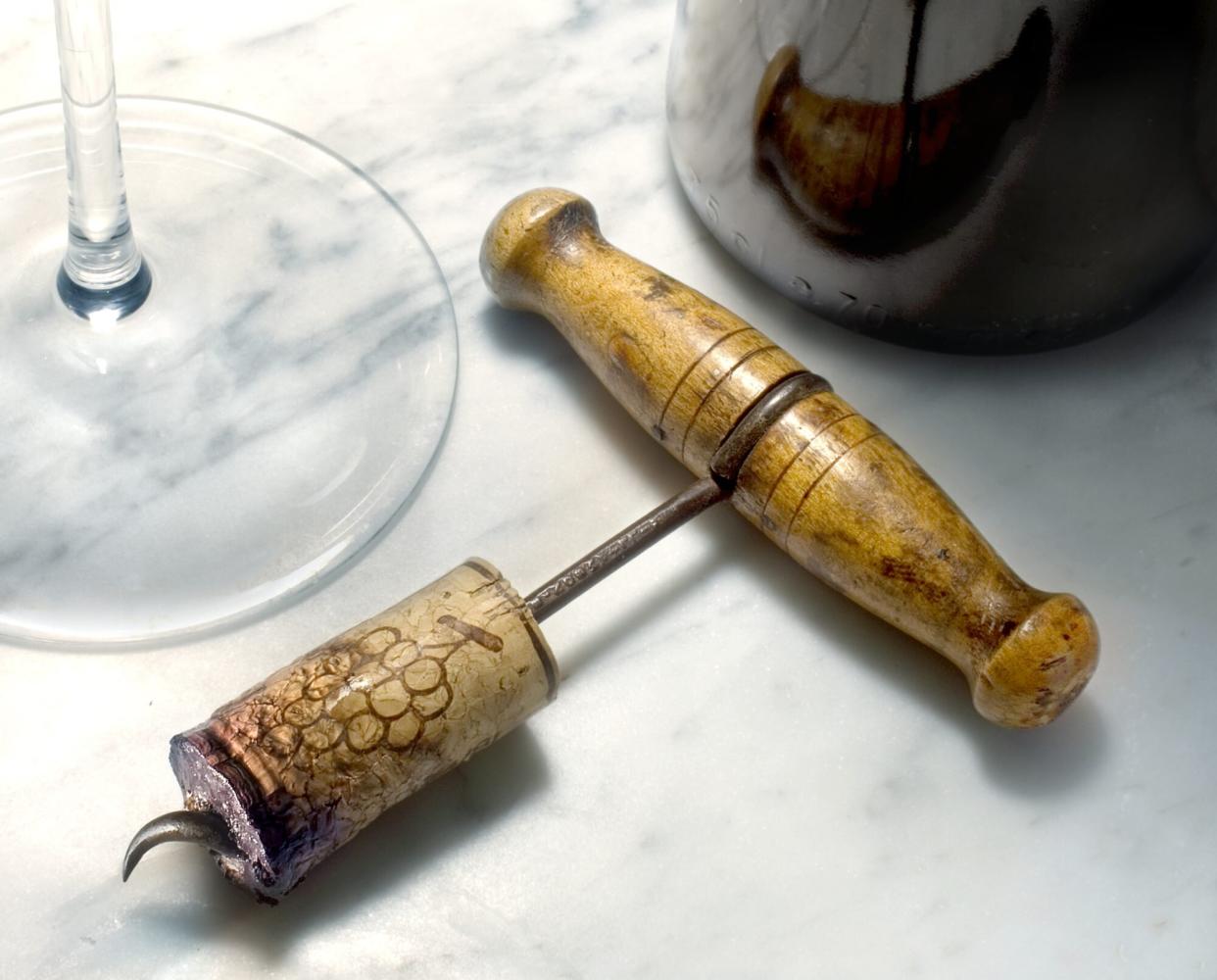Should You Smell the Cork After Opening a Bottle of Wine?

ATU Images / Getty Images
Opening a bottle of wine is full of anticipation: Once you extract the cork from the bottle, you might pour a small taste of the wine to make sure it's not faulty before pouring for yourself and your guests. Since wine is a living, breathing sample of biological matter that's constantly evolving (and can potentially be spoiled), this is a smart thing to do. Still, the wine tasting ritual is often fraught with confusion over one key element: Should you smell the wine cork?
Even wine professionals disagree to some extent over the necessity of the "sniff" in the tasting ritual, so it's no wonder that wine lovers are unsure of the etiquette around this practice.
Related: What's the Best Way to Chill Wine?
What Can the Cork Tell You?
When ordering wine in a restaurant setting, your server should present the cork after opening a bottle. According to the Court of Master Sommeliers, this is an official standard of proper wine service. Most restaurant guests aren't aware of the two main reasons for this—or the fact that they have nothing to do with the smell of the cork. First and foremost, the cork is presented so that you can authenticate the bottle. Most corks are stamped with the name of the winery and sometimes even the vintage year as a way of letting you know that the provenance of the juice in the bottle is consistent with what you purchased. When you see the official cork, you know that the bottle is authentic (historically, some less than ethical restaurants were known to refill empty bottles of fine wine with cheap swill and re-cork them with a generic, plain cork to sell them again!). Even today, counterfeit wine is an ongoing problem in the world of wine collectors and auctions. When presented with a cork at a restaurant, you're simply meant to examine it to ensure your wine is the real deal.
The condition of a wine cork can also help you check for quality. Marcelo Doffo, founder of Doffo Winery in Temecula Valley, California, says, "The cork tells the story. You can see the quality of the closure the winemaker used and whether the wine was properly stored." According to Vinfolio, if the cork is soggy, crumbling, or soaked with wine—it's a sign the wine might be spoiled due to poor storage (the cork should only have slight staining at the base).
The reason some wine professionals will sniff the cork is that they're looking for early evidence that the wine could be infected with a bacteria called 2,4,6-trichloroanisole—or TCA for short. Jon McDaniel, head of wine education for Texas-based, female-founded and owned winery Scout & Cellar, offered the following insight: "If you smell the cork and it smells like a wet dog, a musty basement, wet cardboard, odds are that chemical has gotten into the wine through the cork and spoiled it." Most wine industry estimates indicate that anywhere from 2-7 percent of wines are infected with TCA (although there's still never been a definitive study on this).
It's the Smell of the Wine, Not the Cork, That's Important
TCA is not harmful, but it can evoke these unpleasant flavors in wine or sometimes leech the wine of its vibrant, fruity flavors, tasting stale and flat. The presence of TCA is also known as "cork taint" (and you might hear your favorite sommelier declaring the wine is "corked"). "Corked" is a bit of a misnomer, though—although TCA can infect corks and enter the wine that way, it can also come from old crates, sink drains treated with chlorine, humidifiers used around the winery, and even the inside of an oak barrel. So, sniffing a cork that smells musty might indicate TCA in the wine, but it doesn't always reflect what's in the bottle.
For this reason, many sommeliers consider the "sniff" inconclusive. Carrie Lyn Strong, sommelier and brand development manager at Sommation, says: "It's unnecessary. I've smelled corks that smell 'corked,' and the wine is fine… and vice versa. It's an antiquated tradition that could alienate a person who purchases a bottle that is not sealed with a cork." Missy Neill, wine director of Aska in New York City, also advises against smelling the cork. "Smell the bottle. Then pour it into a glass. Smell that. The cork does not always tell the true story, and smelling it will only tell you that the wine is corked if the cork reeks of [TCA]. Sometimes it doesn't, and the wine is corked, nonetheless," she explains.
It's important to note that TCA is only one potential fault in a wine. Smelling a cork will not tell you if a wine is oxidized, suffers from reduction (producing a sulfur smell), or is microbially infected or heat damaged. To catch these kinds of faults, you must smell the wine itself, not the cork. And screw caps and synthetic or composite corks won't tell you much about the wine if you sniff those.
To Sniff, or Not to Sniff?
Although smelling the cork won't tell you the whole story of the wine's fitness, it's a harmless practice if you really enjoy it. Some wine drinkers love the ritual of giving the cork a sniff, even as a quick snapshot and part of the tasting process. Devin Parr, DipWSET, founder and managing Partner of Devin Parr & Associates, admits: "If I am opening a bottle of wine at home, I do smell the cork. In some ways, it's just a habit and part of the ritual for me. I know some people inexplicably think this is gauche, but you really can get a quick preview of any flaws from that initial whiff. I won't, however, do it in a restaurant if it's presented to me, as I trust the sommelier or wine server to do the first pass and then will confirm with the wine in my glass."